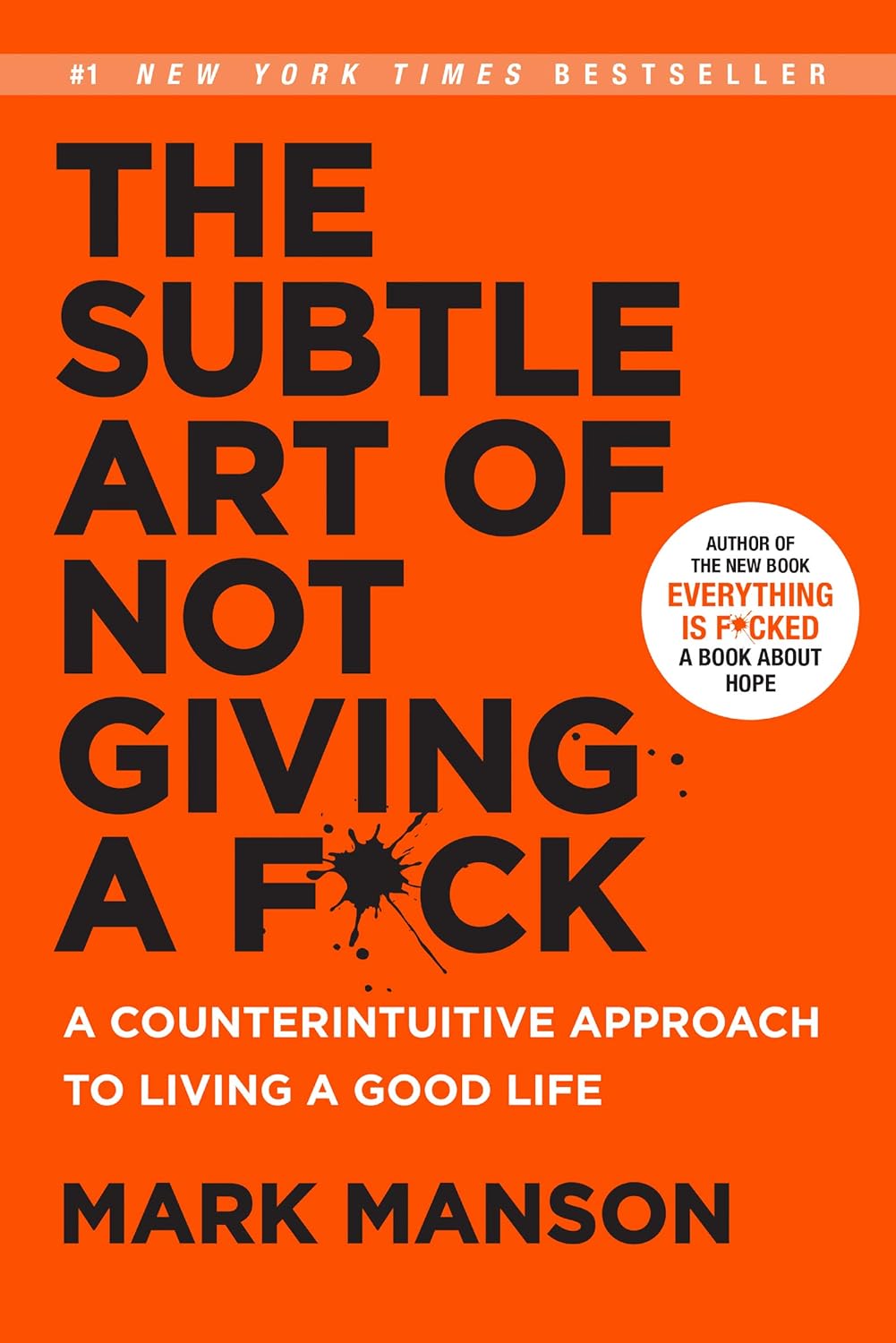
The Subtle Art of Not Giving a Fuck: Mark Manson
Ever had that friend who tells you to “just chill” while you’re having a meltdown? Mark Manson is that friend, except he’s actually making sense – most of the time. His counterintuitive self-help book has sold millions of copies, proving that people really do give a fuck about not giving a fuck.
Manson’s central premise is refreshingly blunt: life is hard, you’re not special, and that’s perfectly okay. In a world saturated with toxic positivity and Instagram-perfect lives, his message hits like a cold shower – uncomfortable at first, but oddly refreshing once you get used to it.
The book’s core argument is that we should be selective about what we care about rather than trying to not care at all (plot twist!). It’s like having a limited number of fucks to give, and Manson is teaching us how to invest them wisely. Think of it as mindfulness for the cynical millennial.
Key Takeaways:
- Happiness comes through solving problems, not avoiding them
- Values are the key to meaningful living, but many of us have garbage values (ouch)
- Suffering is inevitable and useful; it’s what gives life meaning
- You’re not special, and that’s liberating
- Taking responsibility for everything in your life is the real key to not giving a fuck
The Good:
Manson has a gift for making complex philosophical concepts digestible through crude humor and pop culture references. He’s basically what would happen if Nietzsche wrote for BuzzFeed, and somehow it works. His writing style is engaging, and his use of personal anecdotes adds authenticity to his arguments.
The book succeeds in cutting through the noise of traditional self-help wisdom. Instead of promising the moon, it tells you to be content with your slice of earth. It’s anti-self-help self-help, and there’s something deeply satisfying about that paradox.
The Critical Points:
Here’s where things get interesting (and where I might ruffle some orange-covered feathers):
- The Irony Paradox: For a book about not giving a fuck, it spends an awful lot of time telling you exactly what to give a fuck about. It’s like a zen master who won’t stop talking about silence.
- Oversimplification: While the book’s accessibility is a strength, it sometimes veers into oversimplification territory. Complex psychological concepts get reduced to quippy one-liners, which might leave readers with an incomplete understanding of deep-seated issues.
- Privilege Blind Spots: Manson’s perspective sometimes comes across as that of a relatively privileged person who has the luxury of choosing what to care about. Not everyone has that freedom.
- Repetitive Arguments: By the halfway point, you’ve basically got the message. The rest feels like variations on the same theme – kind of like this criticism about repetition being repetitive.
- The Style Can Be Grating: The constant profanity and forced casualness might work for some readers, but it can feel like your uncle trying to be “hip with the kids.”
The Bottom Line:
Despite its flaws, “The Subtle Art” is a valuable addition to the self-help genre, if only for its willingness to punch holes in the bubble of relentless positivity. It’s like a literary version of that friend who tells you what you need to hear rather than what you want to hear.
The book isn’t perfect, but then again, that’s kind of its point. It’s a self-help book for people who are skeptical of self-help books, and in that niche, it excels. Just don’t expect it to revolutionize your life – and again, that’s kind of the point.
Rating: ⭐⭐⭐⭐ out of 5
Perfect for: Millennials tired of being told to manifest their best life
Not for: Those who can’t handle profanity or prefer their self-help with a side of crystals
Final Thought: In a world where everyone’s trying to sell you the secret to eternal happiness, there’s something refreshing about a book that tells you to lower your expectations – even if it does so while secretly raising them.